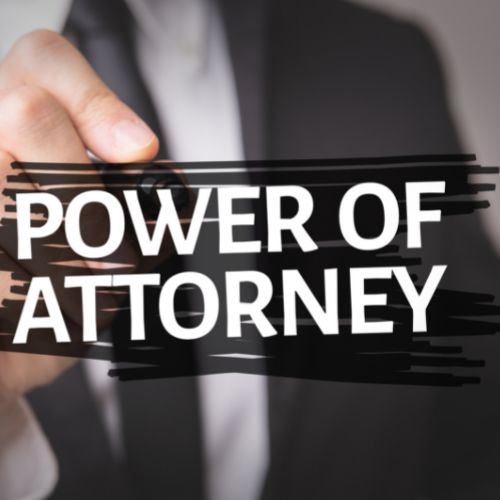Yes, you do, if you want to choose the person who will deal with your property and affairs on your behalf, if you become no longer mentally capable of dealing with them yourself.
You may choose one person (or several people) you trust, to act as your Attorney, and you can give them general powers to do most things with your property and finances, or limited powers to manage certain aspects of your property and finances. For example, you may allow your attorney to manage your bank accounts, but not your house.
With your permission, an Attorney can:
- Assist with the payment of Nursing Home fees from your account
- Sign cheques and withdraw cash, when required
- Buy or sell shares or property
The Attorney’s powers relate to property and finance matters only however – they do not have any other powers over you! They can’t decide where you live or what medical treatment or care you receive.
It’s essential that you have ‘mental capacity’ to make an EPoA. This means that you must be able to understand what an EPoA is and what making one means. To be lawful, the EPoA must be in the exact Form prescribed by the Enduring Power of Attorney Regulations (NI) 1989. The Form must be executed (i.e. made and signed by the maker as well as the witnesses) in the correct way otherwise it may not be valid or it may not operate in the way that you wish. It is therefore very important to seek advice from a Solicitor who specialises in this area of law. Your Solicitor will keep the original EPoA safe, so that it is available if required in the future.
If for any reason you become incapable of handling your own affairs, your Attorney would register the EPoA with the Office of Care and Protection (OCP), which is part of the court system in Northern Ireland. Without an EPoA, someone would have to apply to become a controller, which has similar powers to an Attorney, but it is a more time-consuming and expensive process. The Controller would be a person chosen by the Court, and would have to pay annual fees and submit reports to the OCP. Making an EPoA now can make things easier for the people close to you in the future.
Talking about EPoAs with your family or close friends can be a good way to think about what you want for the future. It will also help them to know and understand your wishes and preferences.
It can be very reassuring to know that, if you are unable to make a decision for yourself in the future, someone you have chosen and trust will make that decision for you. Nikki McConnell is a Partner at Worthingtons Solicitors who regularly advises on wills and probate matters, including Enduring Powers of Attorney. If you have such a query, please do not hesitate to contact Nikki and her experienced Wills and Probate Team on 028 9181 1538 or e-mail at [email protected]


